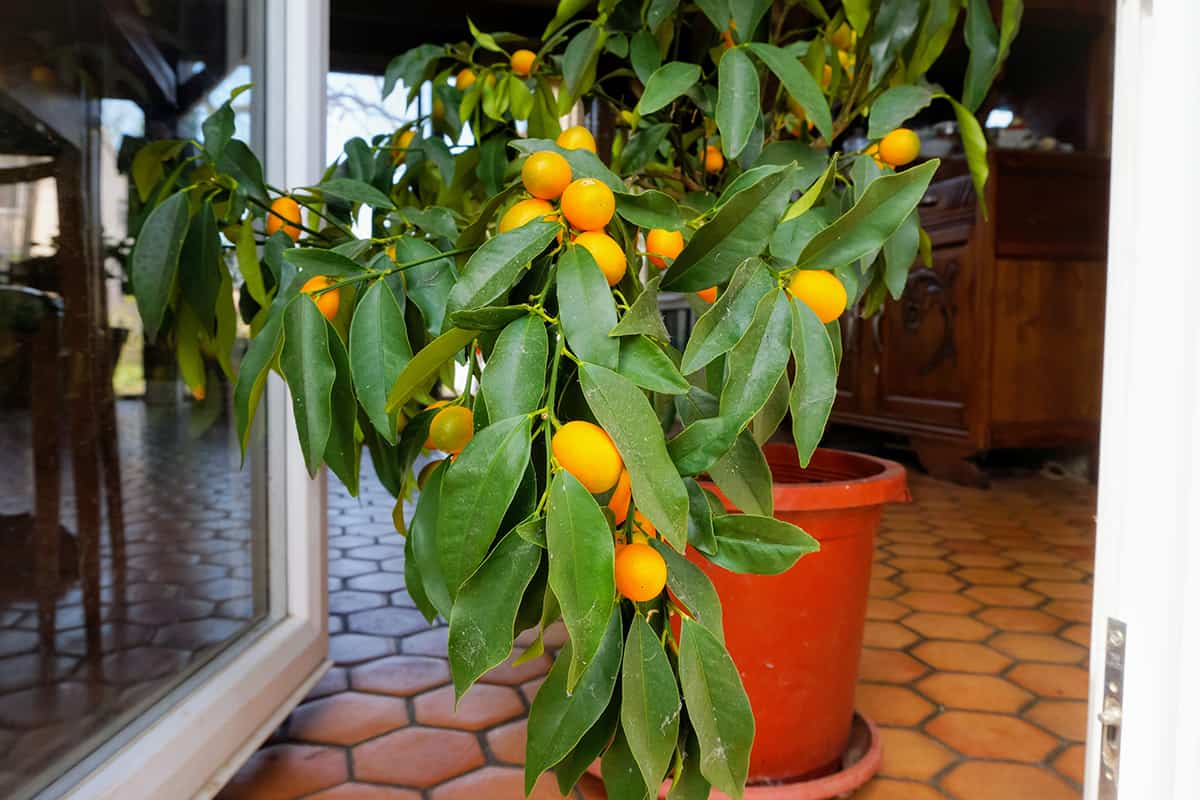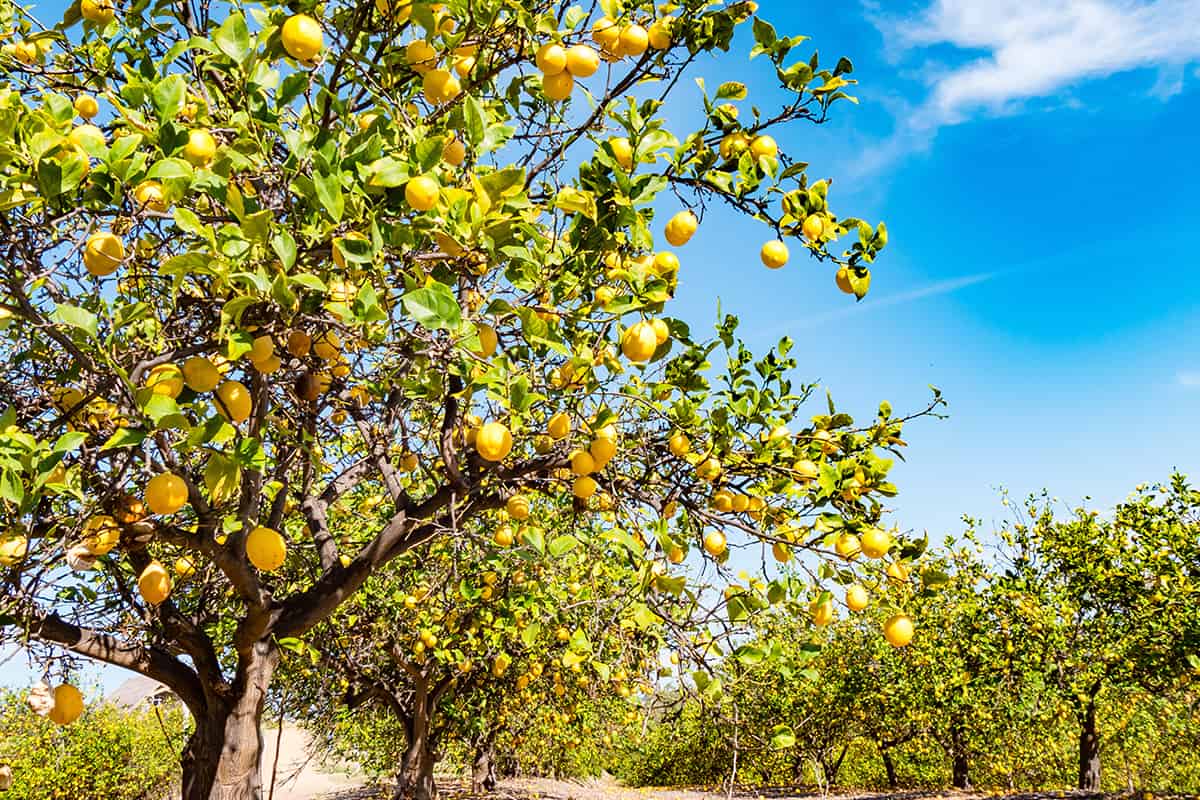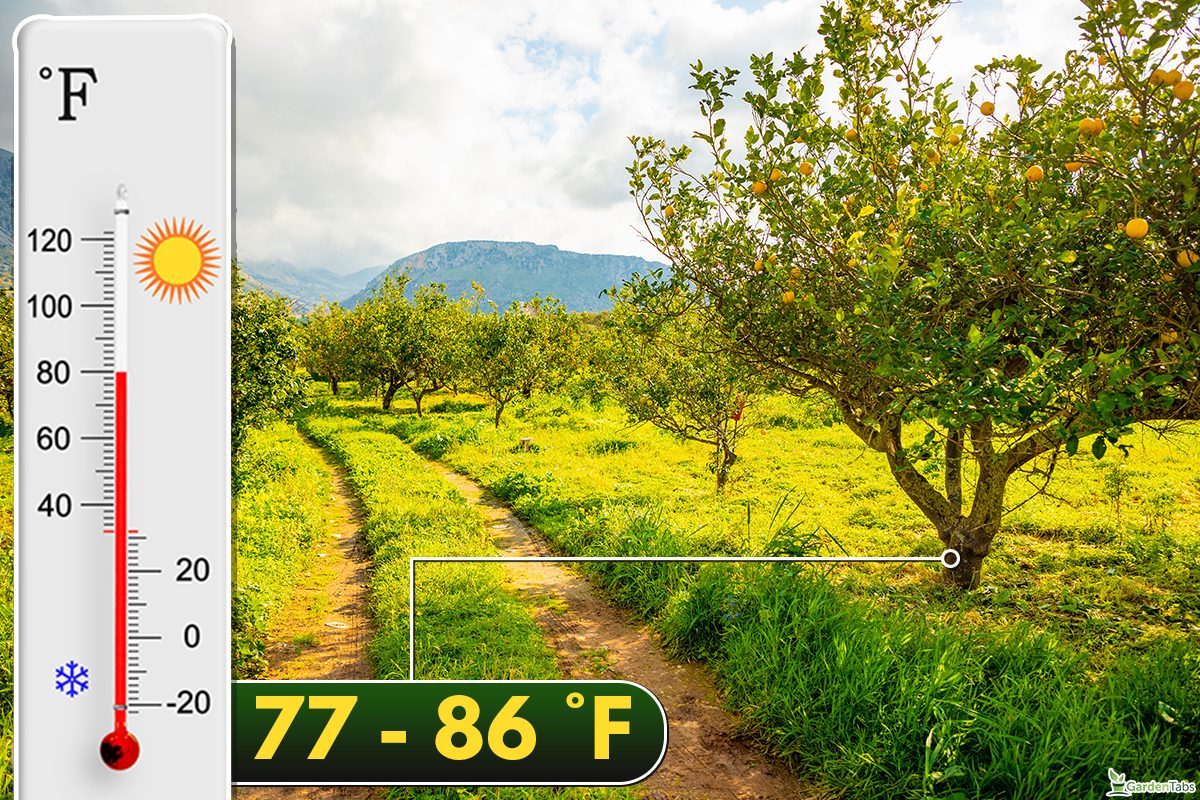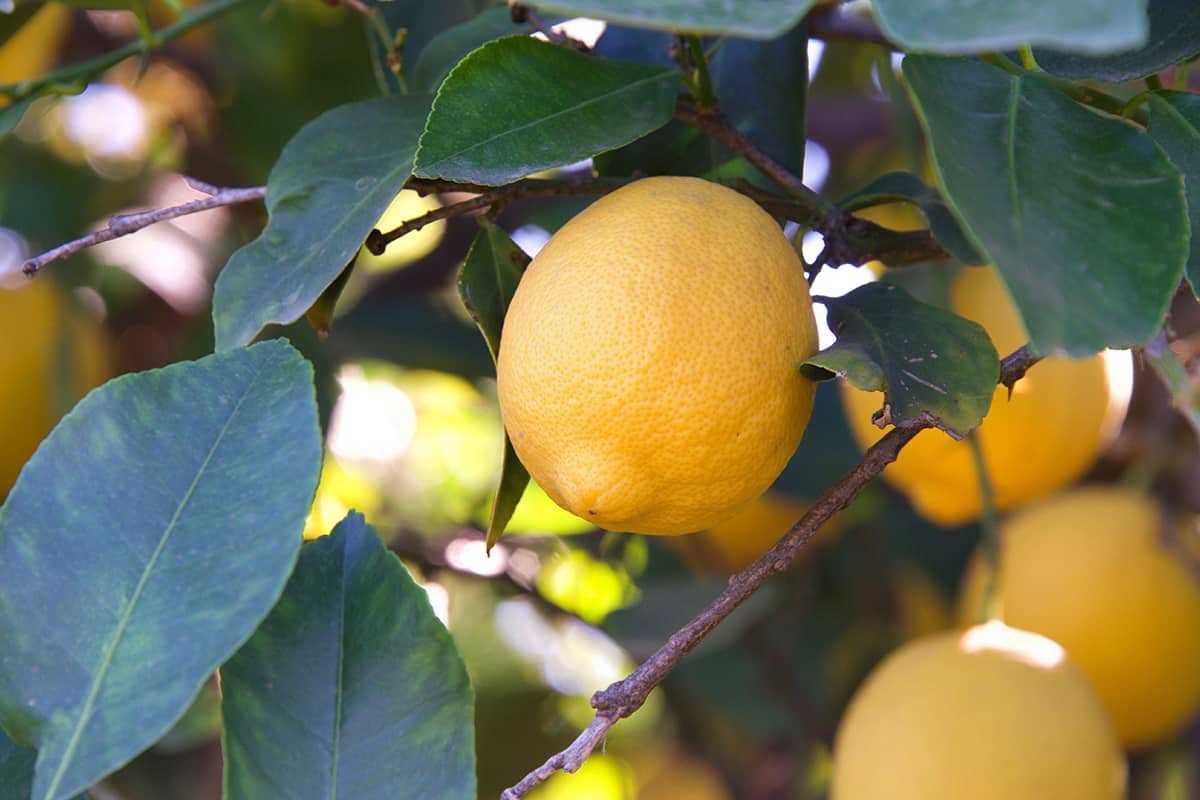Pollination is the fundamental process that allows lemon trees and other plants to multiply and propagate. Are lemon trees self-pollinating, or do they need vectors in order to repopulate? Read on and find out what our research revealed.
Lemon trees are naturally self-pollinating and can propagate on their own through the action of anther and stigma. However, you can accelerate the process by manual pollination to produce yield sooner.
Although lemon trees can self-fertilize, you can actually help facilitate the process through a practice known as manual pollination. The article includes facts based on our research that you need to know about pollination and the associated structures that make the cycle possible.
Self-Pollination Vs. Cross-Pollination
Pollination is an essential cycle in nature. Its two types – cross and self-pollination – determine the capacity of fruit trees and plants to become productive.
Pollen grains are sticky yellow particles found in the male part (anther) of fruit-bearing plants, and then transferred to the female structure (stigma), resulting in fertilization and eventual yield.
Cross-pollination occurs when pollen from a male flower is transferred to the female plant reproductive system. Vectors such as bees, butterflies, birds, small mammals, and the wind facilitate the process.
Once insects land on flowers, the grains adhere to their hairy legs, and when they come in contact with other blossoms, the pollens are successfully transported, and fertilization takes place.
Self-pollination, however, does not necessarily require vectors to facilitate the process. Lemon trees and other self-fertilizing plants develop an anther and stigma within the same flower.
Once the flower opens, the anther releases the pollens into the stigma, and pollination is completed.
Most vegetation, however, has adapted to the changing environment. That’s why they do not self-pollinate. Inbreeding negatively affects their development. As a response, the flowers are wired in a way that the anthers and stigma mature at different times.
Can Lemon Trees Pollinate Indoors?

Although lemon trees are self-fruitful, those grown indoors might require manual pollination as well as another tree of the same variety to produce a plentiful yield.
The general conditions and the environment the plant is exposed to affect flower and fruit production, that’s why proper care and maintenance are needed.
Hand Or Manual Pollination
Manual pollination involves a hands-on practice that aims to accelerate the process and promote prolific yield. However, to fully appreciate or understand the method, it would be necessary to familiarize yourself with the parts of a flower.
- The anther is the male reproductive part in which the pollens are stored. It features several sac-like structures above a filament and is located around the stigma.
- The stigma is the female reproductive part growing in the center of the flower. It is located at the top of a tube-like structure that terminates on the ovule. When pollens are released, they enter the stigma.
Using A Paintbrush
Manually pollinating your lemon tree is a fairly direct method. You will need a long and thin paintbrush with a fine tip and the softest bristle or a cotton swab.
Gently rub the brush on the anthers, filaments, and petals until yellow-like grains stick to the material, then carefully scrape off the pollen to the stigma. You won’t have to rinse the paintbrush after each flower.
For successful pollination, repeat the process daily at least once per day on every single bloom growing on your tree.
Using Blooms
Using the blooms is another way to hand pollinate. You can tap a flower over another to loosen and dislodge the pollen.
Remember to start with manual pollination as soon as the flowers begin to blossom.
Do You Need To Hand Pollinate Lemon Trees Growing Outdoors?
You could actually hand-pollinate lemon trees grown outdoors but it is not advisable. Even though they are self-fruiting, vectors could still facilitate the pollination process, so you would be saving time since pollinators will do the job for you.
How To Care For A Lemon Tree

Pollination is not the only factor that affects a fruitful yield. As much as possible, you should provide your tree with its preferred growing conditions for it to thrive and produce prolific flowers and fruits.
What Temperature Do Lemon Trees Prefer?

Temperature and humidity might be the greatest factors contributing o your tree’s blooming stage.
Native to tropical regions, lemon trees prefer milder winters and warm climates – temperatures between 77 and 86 degrees Fahrenheit is the best range. It is ideal for growing them in the South and coastal states with hardiness zones 8 to 11. Frigid conditions below 29 degrees Fahrenheit can kill the plant.
If you live in zones 7 and below, it is advisable that you grow your lemon tree indoors in a planter or pot. This way, you could easily transfer them indoors if frigid conditions persist.
How Much Light Does Lemon Tree Need?
To promote flowering, lemon trees should be exposed to at least 8 hours of sunlight per day. Inasmuch as most citrus fruits thrive in direct light, certain varieties can be grown indoors as long as they are close to sunlit areas.
Potted lemon trees can be moved indoors during the winter. Protect outdoor plants by using cold frames to shield them from the elements.
How Often Should You Water Lemon Tree?

Lemon trees are particular in their hydration requirements. The soil should be kept moist but never waterlogged to prevent root decay and fungi proliferation.
Newly-planted varieties should be watered more often to help their roots form and establish.
Stick to a watering schedule, or hydrate the tree when the topsoil seems dry. This way, the roots will receive adequate moisture without having to sit in a soggy growing medium. As the trees mature, they become more tolerant of drought.
Since lemon trees are not exposed to too much sunlight indoors, the soil won’t dry quickly, and the plant could require less watering.
What Soil Is Best For Lemon Tree?
Lemon trees thrive best in fertile, well-draining, slightly acidic soil to develop and produce yield. The organic composition and drainage properties can be improved by the application of organic as well as inorganic matter.
The medium is best augmented by the addition of composted materials like peat moss, rice hull, and coconut coir equally mixed with sand, perlite, or finely crushed gravel to improve drainage and increase circulation.
What Do You Fertilize Lemon Trees With?
The ideal fertilizer for lemon trees should contain equal amounts of sodium, phosphorus, and potassium ratio or NPK at 6% proportion in terms of weight. The low concentration of these macronutrients would enhance the growth and development of the tree without risking root shock or leaf burn.
You could further enhance the amendment by applying organic matter in the form of compost.
A mixture of dried leaves, tree barks, twigs, and moss, would release nutrients into the soil when acted upon by microorganisms such as beneficial bacteria. The byproduct of the decomposition process augments the soil by gradually depositing essential minerals that are beneficial to the tree’s growth and development.
Check out Sunniland 6-6-6 Granule Fertilizer on Amazon.
Should You Prune Lemon Trees?
Pruning refers to the selective removal of excessive foliage to distribute available nutrients and stimulate the proliferation of new growth. It enhances the plant's overall health while controlling its overall form for aesthetic purposes.
Essentially, it improves air circulation and light penetration within the tree’s inner structures. It deters the presence of fungi and other parasites that will otherwise infest the tree and result in disease.
What Kind Of Lemon Tree Should I Grow?

Depending on the pervading climate of your local area, you could choose varieties that are best suited and thrive well within the locality. Lemon trees are best grown and thrive well when the environmental conditions are best suitable to their local and native habitat.
The success of propagation, development, and yield would greatly contribute to raising productive lemon trees.
The following varieties of lemon trees make up a good selection to cultivate and grow due to their resilience to cold temperatures and adaptive qualities:
- The Lisbon variety is less sensitive to cold.
- The Meyers is a hybrid between orange and lemon that is most resistant to frigid temperatures.
In Closing
Lemon trees are capable of self-pollination in order to propagate and multiply. However, the natural process may take considerable time in order for them to produce yield. It is possible to accelerate the process through manual methods and means. We hope the article was both instrumental and useful.
You might also find these topics helpful:

